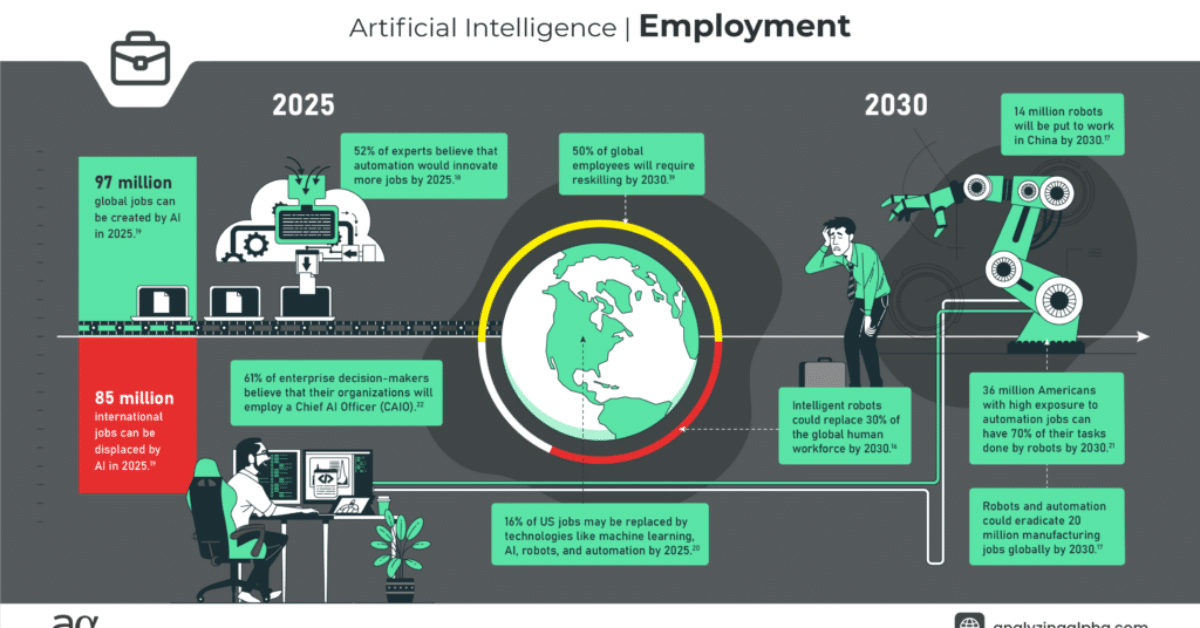Introduction: Why Automation Is the New Backbone of Business Success
In 2025, business automation has become the backbone of modern enterprises. From startups to global corporations, every company now focuses on automating repetitive work to save time, cut costs, and boost productivity. As competition rises and technology advances, automation is no longer optional—it’s a necessity for sustainable growth.
What Is Automation?
Automation means using technology to perform repetitive tasks with minimal human involvement. It ensures faster results, higher accuracy, and reduced workload.
There are different types of automation, including:
- Rule-Based Automation: Follows fixed logic to complete repetitive tasks.
- Robotic Process Automation (RPA): Uses software bots to mimic human actions like data entry.
- Intelligent Automation: Combines RPA, AI, and analytics to make smart decisions automatically.
- Workflow Automation: Connects multiple systems to streamline entire processes.
What Is Business Automation?
Business automation means applying automation techniques across different business processes to improve efficiency and reduce manual work.
Examples include:
- Email marketing automation: Automatically sending personalized emails to customers.
- Finance automation: Auto-generating invoices, reconciling accounts, or tracking expenses.
- HR automation: Automating employee onboarding, leave requests, and payroll processing.
- CRM automation: Managing leads, reminders, and client follow-ups automatically.
In short, business automation helps organizations operate smarter, faster, and with fewer errors.
Why Businesses Need Automation in 2025
Businesses in Tier-1 countries like the USA, UK, Canada, and Australia are leading the automation revolution. The reasons are clear:
- Saves time and money: Tasks that once took hours now finish in minutes.
- Increases accuracy: Reduces human errors in data and decision-making.
- Boosts productivity: Employees can focus on strategy instead of repetitive work.
- Improves customer experience: Faster response times and personalized communication.
- Scalability: Automation makes it easy to expand without hiring large teams.
Popular Business Automation Tools (2025 Edition)
Here are some widely used business automation tools you can explore in 2025:
- Zapier / Make (Integromat): For connecting apps and automating workflows.
- HubSpot / ActiveCampaign: For marketing and sales automation.
- UiPath / Automation Anywhere: For robotic process automation (RPA).
- Microsoft Power Automate / n8n: For enterprise and open-source automation.
- ClickUp / Notion / Trello: For team collaboration and task automation.
These tools allow even non-technical users to build powerful automated workflows.
How Small Businesses Can Start Automating Easily
Small businesses can start small — you don’t need huge budgets.
- Identify repetitive tasks such as invoice creation, lead tracking, or customer support.
- Choose easy-to-use Ai tools like Zapier, n8n, or Google Workspace automation.
- Automate one process at a time.
- Track performance and expand gradually.
By starting with no-code or low-code platforms, even small business owners can compete with large enterprises.
Future of Business Automation (AI + No-Code Tools)
The future of automation lies in AI-driven and no-code tools. Artificial intelligence can now:
- Predict customer behavior.
- Automatically generate emails and marketing copy.
- Manage workflow decisions dynamically.
Meanwhile, no-code platforms empower non-developers to create complex workflows with simple drag-and-drop tools.
In Tier-1 markets, this shift is creating a new wave of digital-first companies that rely heavily on automation for daily operations.
Business Automation Examples
Real-world examples show how automation transforms business:
- E-commerce: Auto-generated order confirmations, shipment tracking, and product recommendations.
- Finance: Automated budget tracking and tax reporting.
- Healthcare: Appointment scheduling and patient data management.
- Media: Content scheduling and analytics reporting.
Each of these proves that automation reduces manual effort and boosts efficiency.
Business Automation Tools
Some top-rated tools by category include:
Workflow Automation: N8N, Zapier, Make, Microsoft Power Automate
RPA Tools: UiPath, Blue Prism, Automation Anywhere
Marketing Automation: HubSpot, Mailchimp, ActiveCampaign
AI Automation Tools: ChatGPT, Jasper, Notion AI
Types of Business Process Automation
There are four main types of business process automation:
- Basic Automation: Simple, rule-based task automation.
- Process Automation: Streamlines business workflows end-to-end.
- Integration Automation: Connects multiple apps for seamless data flow.
- AI-powered Automation: Uses AI and ML for intelligent decision-making.
These types combine to form the backbone of modern business transformation.
Business Automation Salary
Automation professionals are in high demand globally.
- USA: Average salary $85,000–$120,000 annually.
- UK: Around £50,000–£90,000 annually.
- India: ₹5 LPA – ₹18 LPA for RPA developers and automation specialists.
As companies adopt more automation, salaries continue to rise—especially for roles like Automation Architect and Business Process Manager.
Conclusion: How Automation Saves Time, Money, and Boosts Growth
In conclusion, What Is Business Automation? It’s the art of letting technology handle what humans shouldn’t have to. By automating repetitive work, businesses save time, reduce costs, and scale faster. From startups to enterprises, automation is the key driver of growth in 2025 and beyond. Whether you’re a small business owner or a corporate professional, the time to automate — is now.
FAQs
Q1. What is the meaning of business automation?
It means using technology to automatically perform business tasks or workflows—reducing the need for manual effort, speeding up operations and improving consistency.
Q2. What is an example of an automated business?
An online retailer that uses automated stock reordering, customer chatbots for support and marketing triggered by purchase behaviour is an example of an automated business.
Q3. What are the 4 types of automation?
Rule-based automation
Robotic Process Automation (RPA)
Intelligent automation / Hyperautomation
Workflow/platform automation
Q4. What is a simple definition of automation?
Automation is the use of technology to carry out tasks or processes with minimal human involvement.





